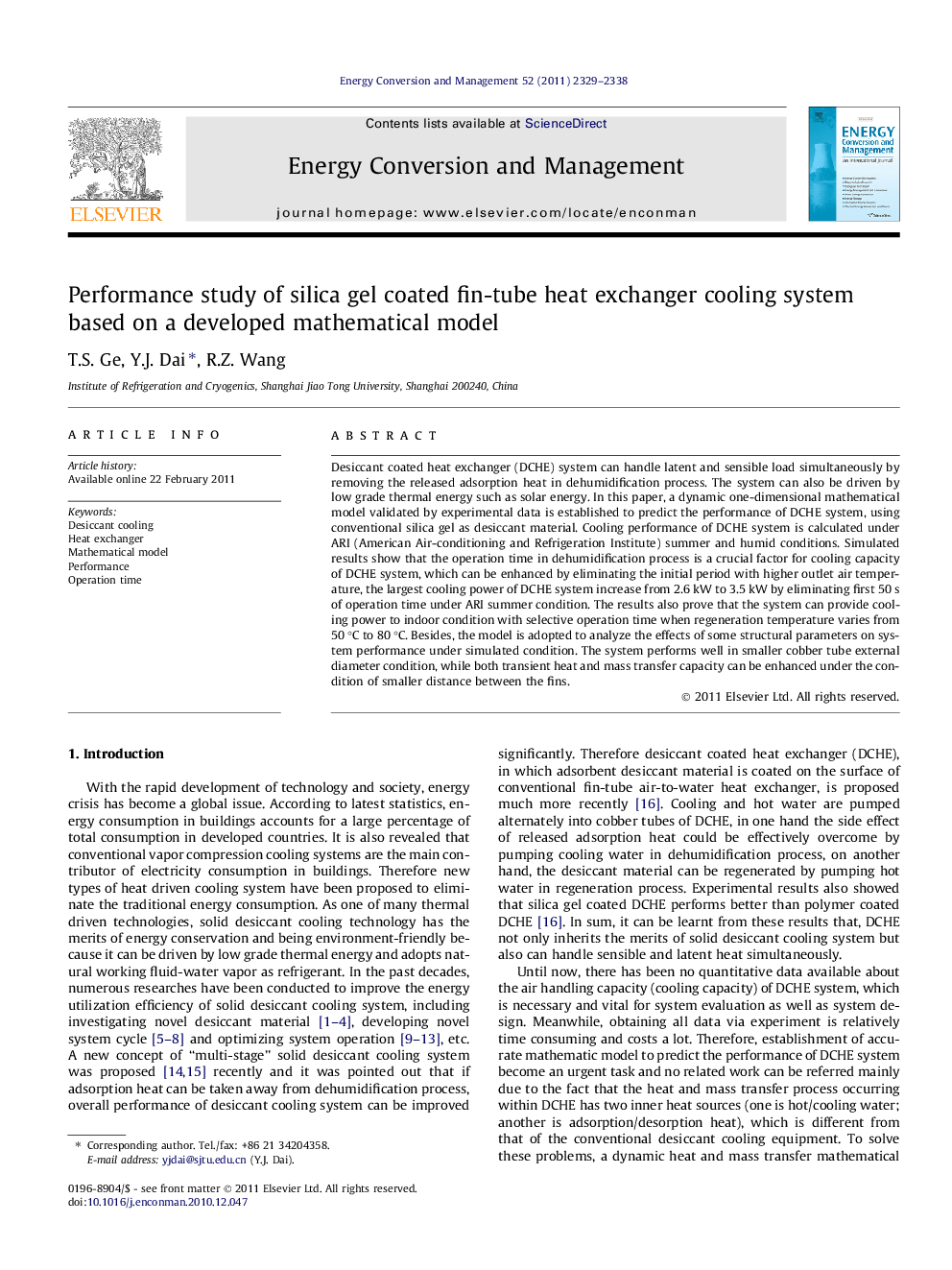| Article ID | Journal | Published Year | Pages | File Type |
|---|---|---|---|---|
| 761370 | Energy Conversion and Management | 2011 | 10 Pages |
Desiccant coated heat exchanger (DCHE) system can handle latent and sensible load simultaneously by removing the released adsorption heat in dehumidification process. The system can also be driven by low grade thermal energy such as solar energy. In this paper, a dynamic one-dimensional mathematical model validated by experimental data is established to predict the performance of DCHE system, using conventional silica gel as desiccant material. Cooling performance of DCHE system is calculated under ARI (American Air-conditioning and Refrigeration Institute) summer and humid conditions. Simulated results show that the operation time in dehumidification process is a crucial factor for cooling capacity of DCHE system, which can be enhanced by eliminating the initial period with higher outlet air temperature, the largest cooling power of DCHE system increase from 2.6 kW to 3.5 kW by eliminating first 50 s of operation time under ARI summer condition. The results also prove that the system can provide cooling power to indoor condition with selective operation time when regeneration temperature varies from 50 °C to 80 °C. Besides, the model is adopted to analyze the effects of some structural parameters on system performance under simulated condition. The system performs well in smaller cobber tube external diameter condition, while both transient heat and mass transfer capacity can be enhanced under the condition of smaller distance between the fins.
Research highlights► A dynamic mathematical model is built to predict the performance of DCHE system. ► Operation time in dehumidification is a crucial parameter to system performance. ► Under ARI summer condition, the largest cooling power can reach to 2.6 kW. ► Under ARI humid condition, the largest cooling power can reach to 3.4 kW. ► System performs better with smaller fin distance and tube diameter.
